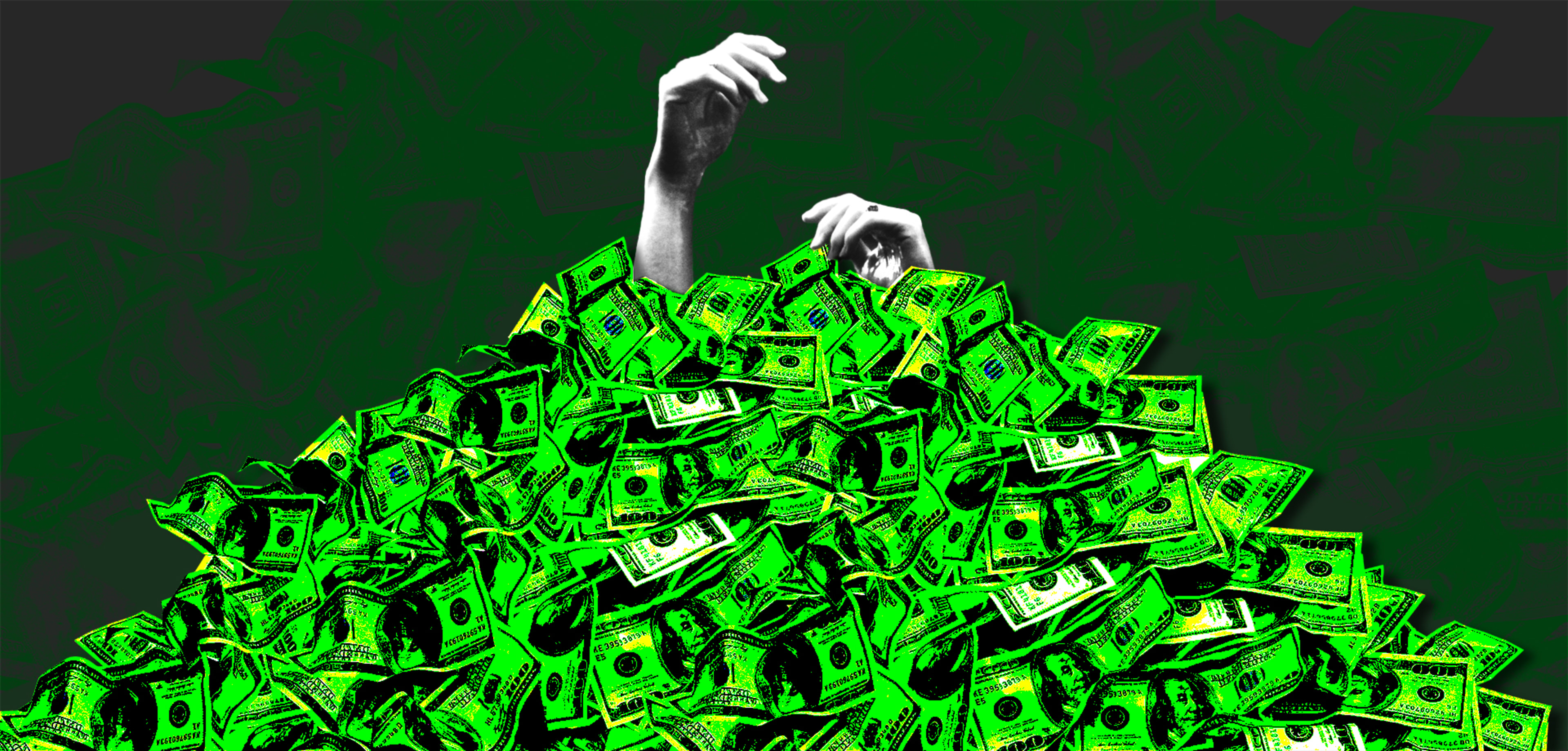COVID-19 was a boon for the superrich. There are few better examples than the founders, CEOs, and spouses of the five Big Tech giants: Amazon’s Jeff Bezos and Mackenzie Scott, Microsoft’s Bill Gates, Facebook’s Mark Zuckerberg, Google’s Larry Page and Sergey Brin, and Apple’s Tim Cook and Laurene Powell Jobs. I call them the tech barons.
The recently released Forbes World’s Billionaires List includes some shocking figures about our tech overlords. At the start of 2020, the tech barons were collectively worth $419 billion. A year later, their wealth had soared to $651 billion—a 56% increase. The hoarding of that wealth harms us all: It distributes resources away from those who need it most and, by allowing the tech barons to influence government policy, corrodes democratic society.
Most of us will never grow our wealth by 56% in a year. But wealth begets wealth. The superrich have access to investments that yield higher returns, the corporations they run pay less and less corporate tax, and as individuals they pay less in income tax than the rest of us.
The barons’ financial advantage over the average person is extraordinary. While their median net worth is $90.2 billion, the net worth of the median white American household is $189,000, while that of Black American families is $24,000. In other words, the median Big Tech billionaire is more than 477,000 times wealthier than the median white American family, and more than 3.7 million times wealthier than the median Black family.
To get a further sense of scale, consider what these billionaires could achieve with their wealth if they decided to. Together, they could:
- End global hunger ($330 billion);
- Eradicate malaria from the face of the earth ($120 billion);
- End homelessness in America ($20 billion);
- Feed the hungry suffering in Yemen’s famine ($4 billion);
- Give everyone in the world access to clean water and sanitation for six years ($22 billion per year); and
- Vaccinate the world from COVID-19 ($25 billion).
With that done, they would still have enough for each of them to take home $2.6 billion. With their spare change, they could each afford to collect the 10 most expensive works of art in the world ($2.3 billion) or take on another pet project, such as saving 520,000 lives by providing critical vaccines to children across the world.
Some may find it unreasonable to ask the Big Tech barons to survive on just $2.6 billion each. After all, the thinking goes, the barons earned that money. But these billionaires could give away $144 billion—more than enough to eradicate malaria on our planet—and still be as rich as they were when the pandemic started in 2020.
While maintaining their 2020 level of wealth, these Big Tech billionaires could start a direct cash transfer campaign and send $1,100 checks to every American family. Or they could send $19 to every person in the world. (That would be far more impactful: 689 million people around the world live on less than $1.90 a day.) Jeff Bezos would still walk away with $113 billion, and Mark Zuckerberg with $54.7 billion.
As long as the tech barons remain in possession of extraordinary concentrations of wealth, that inequity will continue to erode our society’s democracy. At a time when Congress, independent agencies, and state attorneys general are looking to rein in the power of Big Tech, the sheer wealth of these individuals makes it hard to hold them and their corporations accountable.
That’s because the firms controlled by the Big Tech barons give to political campaigns in order to influence politicians. They lobby for policy in their favor, armed with the biggest budgets in the country. And they whisper into the ears of sympathetic politicians at dinner parties and fundraising events behind closed doors only immense wealth will open.
What is to be done? Even when billionaires commit to giving away their wealth, they invariably give to undemocratic, private institutions. This allows billionaires—not democracies—to set global priorities.
Fortunately, activists have long understood and organized for proposals that address this undue power and wealth. What remains is for our government to act. As first steps, we must pass a wealth tax to make the superrich pay their fair share, and tax excessive CEO pay that is hundreds of times greater than a median worker’s pay.
We must pass democracy reform such as HR1/S1, the For the People Act, which would rein in the ability of the superrich and big corporations to influence our political system, and overturn Citizen’s United to get corporate money out of politics.
Lastly, we must address the extractive business models that allow Big Tech operators to amass such wealth. That means: breaking up their companies, limiting anti-competitive mergers, passing federal privacy legislation, banning surveillance advertising, and protecting workers’ unionizing.
We must act now, before the next billionaire’s list emerges, filled with the ultra-wealthy setting ever-higher records in riches at the expense of the rest of the world.
Jane Chung is Public Citizen’s Big Tech Accountability Advocate. Prior to joining the organization, she worked on Elizabeth Warren’s presidential campaign, and before that, in agricultural development in Rwanda. She started her career at Facebook, which informs her analysis of Big Tech’s power today.
Recognize your brand’s excellence by applying to this year’s Brands That Matter Awards before the early-rate deadline, May 3.
